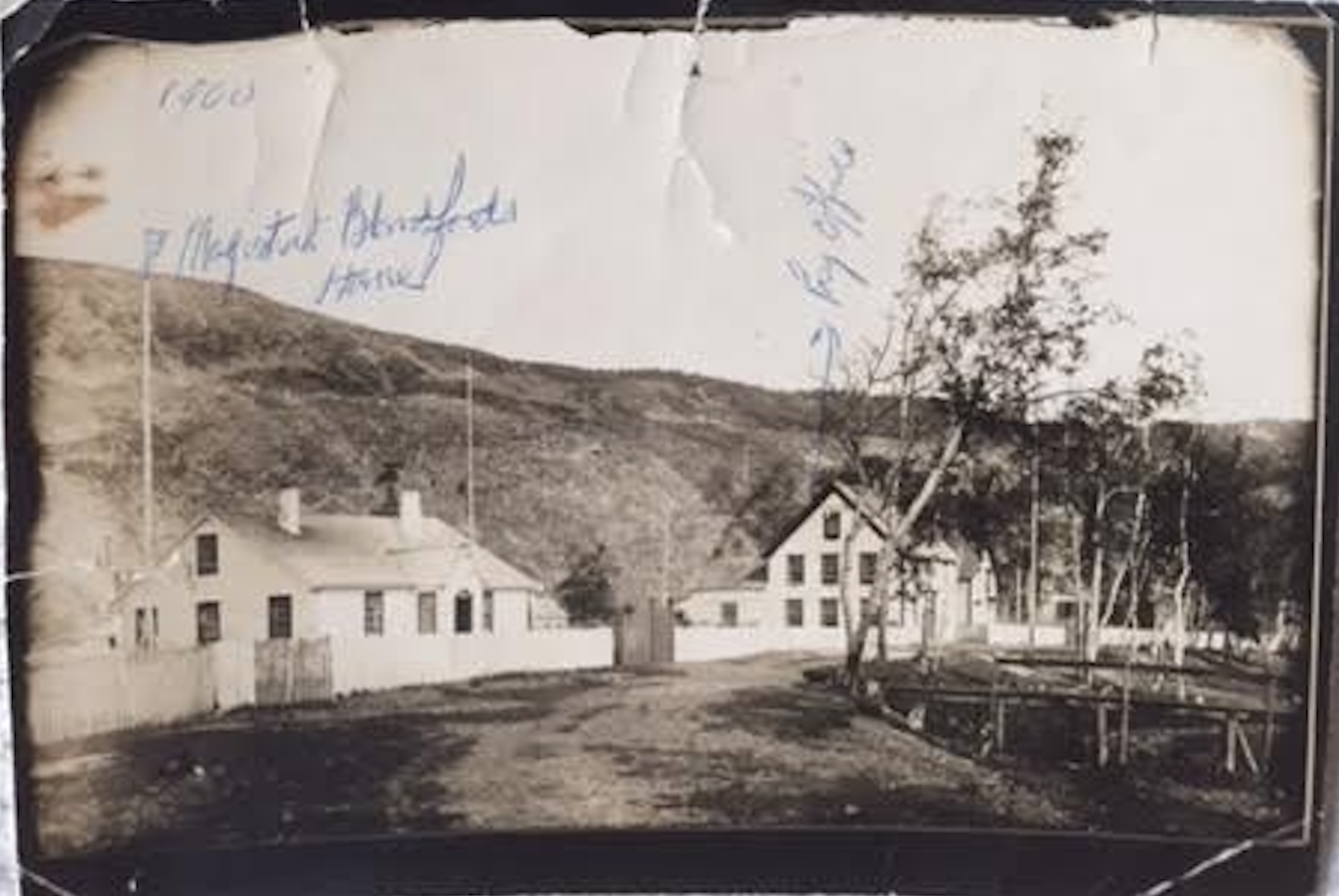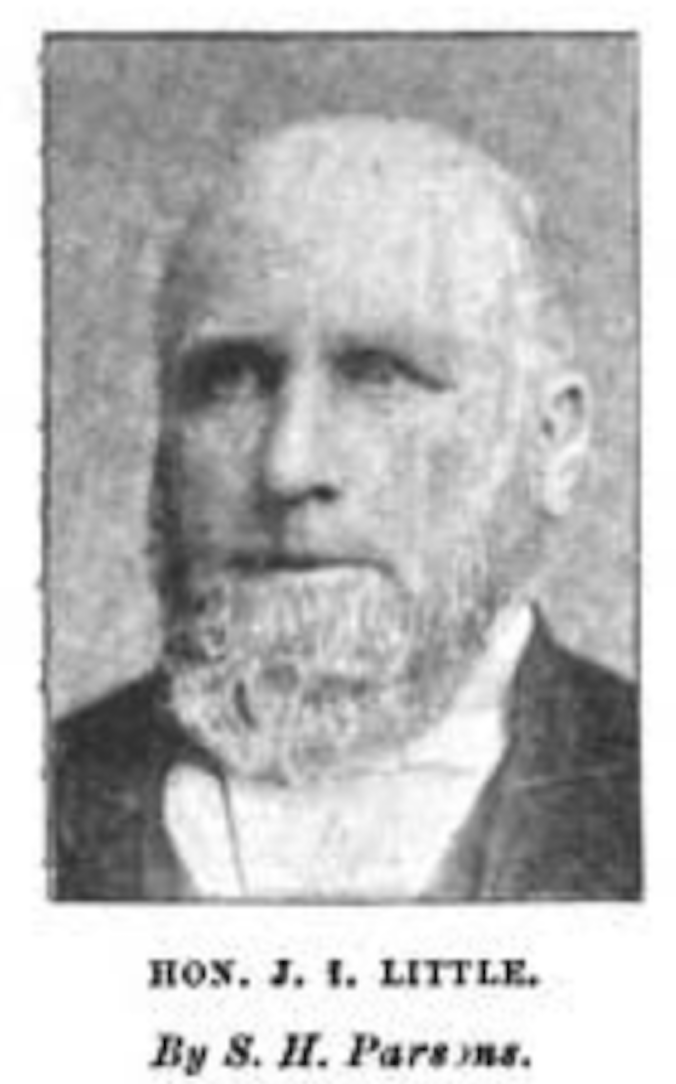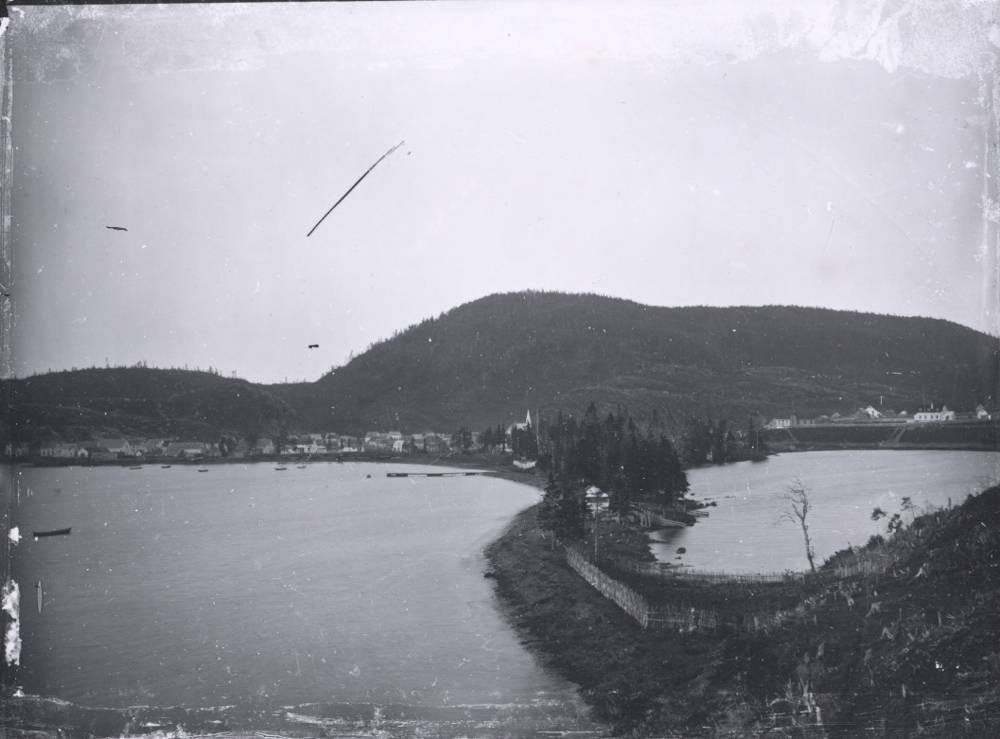I’d like to introduce you to somebody. His name was John Bennett Blandford. He was an Englishman who served as Little Bay’s first Magistrate and he was responsible for the largest public event in the town’s history.

Newfoundland was a British colony and the Magistrate was a Justice of the Peace appointed by the Governor as a representative of the Crown. The court in St. John’s had started debating if Little Bay should be assigned a Magistrate in March of 1880 and had continued debating the issue into May. There were larger centres without one but Little Bay was an economic novelty for the colony and hosted a diverse population. Magistrate J.B. Blandford arrived that September. He faced a problem.
While he was recognized as part of the aristocracy, it’s noteworthy that his name appears below that of Mine Manager Guzman when referenced together. The German’s still held sway in 1880 but their power was waining. Magistrate Blandford walked into a situation of confused political control. He represented an external government in a town that had accepted the Baron’s word as law. Premier Whiteway had allowed the Baron free rein over his little fiefdom. This complicated things for the incoming Magistrate and even after the Baron departed a lot of power remained in the hands of mine management.
The town was accustomed to the mine managing more than just their employment. The Baron had hand picked the town’s highest appointments. This included Little Bay’s first minister. In fact the church leaders aligned with mine management in settling the union strike. The mine was changing hands and the new English company had little interest in community building. They were about to see Little Bay’s corruption reach new heights.
The Baron had managed to keep the community dry and well behaved by issuing harsh penalties, picking the town’s leadership carefully, and mindfully molding Little Bay’s culture. Peaceful conditions left with him. The departure of the Germans represented a loss of both subtle and direct social control. Little Bay had been praised for its subdued and organized culture but was quickly becoming a hotbed for criminal activity. The new Magistrate found himself in a difficult position. The first few years of the 1880s got pretty wild west. The town wouldn’t receive a jail until March of 1882 and early attempts at policing appear lax. The Magistrate could do little to alleviate the social problems that followed the loss of the Baron.

Magistrate Blandford’s authority would be reinforced when Little Bay joined the Northern Circuit of the Supreme Court in September of 1883. The court first visited under Judge Pincent but would see Judge Little in the role the following year. Judge Little would then arrive periodically with his legal entourage aboard the steamship Leopard and make rulings on the more serious offences. He would also hear the town’s concerns over the use of government resources and pass along requests for service improvements. This meant their concerns were heard more directly in St. John’s and the community gained a voice in the political system that the Magistrate represented.
The Magistrate’s power was further aided that year by the arrival of Sergeant Thomas Wells. Magistrate Blandford took to the new police sergeant immediately. The two of them threw their combined weight into the town’s growing Temperance Movement and attempted to gain control over the street fighting that had blossomed in the Baron’s absence. Mine management and church leadership were directed toward the same issue. Temperance became the biggest political concern. The focus on it kept one social fire from igniting but offered kindling to another. The situation was far from cooled. The town was divided on the new issue. Alcohol based businesses, only recently legal, suddenly found themselves at odds with police. The police force faced an uncooperative public and an arsonist even torched the Magistrate’s house!
J.B. Blandford was learning the hard way that the legitimacy of his title wasn’t enough by itself. Acquiring social influence required more. He was supported by his family’s role in society. They had to participate with Little Bay and be seen doing it. They involved themselves in everything. The Blandford family played major roles in community events. They were regulars at theatrical performances in the Public Hall, they were vocal proponents of Temperance at town meetings, and they were vital to organizing the town’s festivals, regattas, and tours. The Blandfords helped to manage a variety of large events but by far the biggest was the Queen’s Jubilee in 1887.
A week before Blandford had, had the idea to make the occasion grand. His power came directly from the British Crown so he was going to celebrate the heck out of it. He spoke to clergy about amalgamating the children and made sure the schools would be closed that day. He appointed a committee to oversee field sports and another to prepare food. He collected donations to fund the event. The more he planned, the bigger it got, so he called a public meeting to form even more committees to organize the expanding list of activities.
On August 11th Little Bay celebrated the Golden Jubilee of Queen Victoria. It was by far the biggest thing to ever happen there. The mine was closed and all were given a public holiday. Everyone slept in for an extra hour as the work whistle and morning bell were silenced. It would not be silent for long. The day was announced by military implements including a cannon! There were services first in the morning and after that more than 600 children gathered at the cricket field for a day they would long remember. All included over 1200 people ranging in age from infants to elderly partook of the celebration.

There was a grand parade led by Sergeant Wells’ mounted police. Government officials followed, miners behind them, children next, with the clergy taking up the rear. They waved flags and banners. They’d built numerous swing sets and other amusements. Two large outdoor tables had been assembled each three hundred feet long which were piled high for a public picnic. The regatta started at lunch time with a six mile yacht race to Little Bay Islands and back. Rev. Stephen O’Flynn’s craft the Shannadithid won, it beat the Kate by over twenty minutes! Hundreds of people cheered from the rocky shores, all anxiously trying to get the best view. Other boat races involved the trap-skiffs and four-oared whaleboats. After the regatta they competed on the greasy pole and had field sports. There were hurdle races, cricket matches, and a leaping competition! There was a tug-of-war which caused much excitement when the miners lost to the strikers. It all came together without a hitch and they ended the day with an evening ball. Little Bay’s successful Jubilee was reported across the island. The town took pride in that recognition and they praised their Magistrate for it.
John Bennett Blandford remained Magistrate of Little Bay until 1906 when he stepped down for his old buddy Thomas Wells. J.B. Blandford died just two years later at the age of 78 and is buried in Twillingate. He had served Little Bay from the departure of the Germans when the town was just two years old until after the fires. As Magistrate he’d watched over Little Bay for a remarkable era. His story there, like Little Bay’s itself, was waiting to be retold. I hope I’ve helped you imagine them by writing this.
Thank you for reading it!
